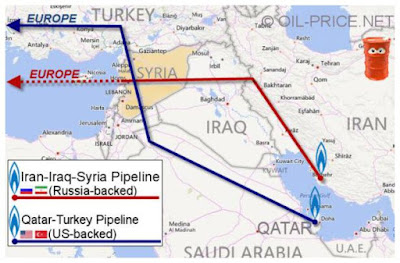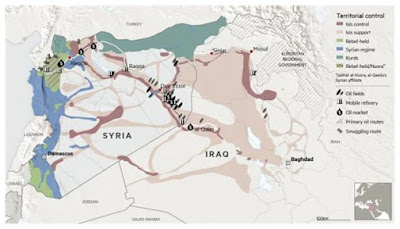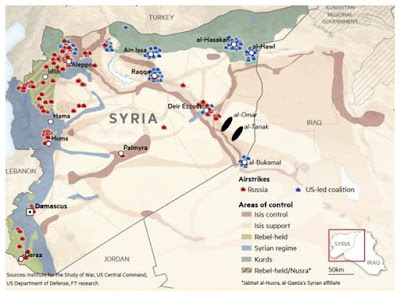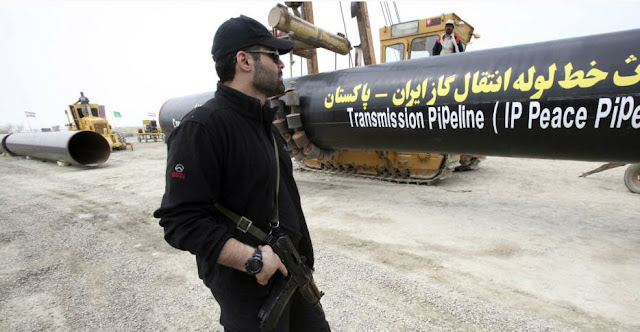Time-Price-Research: Energy War over Syria │ The Geopolitics of Oil and Gas Pipelines
 |
| Major Planned Pipelines - Enlarge |
Russia, the Western powers and the Gulf States are fighting for the best starting position for gas and oil supplies for the European market. France, the United Kingdom, Saudi Arabia and the United States, in particular, are interfering in the distribution struggle without any reference to international law, while Russia's support to the legal Syrian government is fully in line with international law.
Two of the most important oil markets are located in the Syrian cities of Manbij and al-Bab, both of which are located in the Aleppo province. These two cities are also the most important pipeline, the oil from Iraq - from Mosul and al-Qaim - transported to Syria as far as the province of Idlib .
 |
| Territorial Control - Enlarge |
 |
| The fog of war and the realm of uncertainty: Russian and US Airstrikes - Enlarge |
Another planned pipeline was originally to go from the Israeli Golan Heights via Damascus to Turkey. This pipeline would allow Israel to emerge as a gas supplier, provided the government is overthrown in Damascus. But Russia does not want any competitors in the gas market.
In connection with the pipeline routes, the planned "Kurdish corridor" is also critical. The Caucasus Strategic Research Center (KAFKASSAM) in Ankara reports: "The real objective of this corridor is to transport the Kurdish oil and gas from the Northern Iraq over Northern Syria to the Mediterranean by pipeline there. In addition, the US had planned to build another pipeline from the Persian Gulf to the Northern Iraq and from there via Northern Syria. Thus, both Iraq and Turkey should be brought to the West and especially to Europe on the energy market through both Turkey and Northern S yria. But the plan to found a Kurdish corridor fell into the water because the Russians intervened in Syria. Russia is opposed to this corridor because Europe is to be maintained as a customer of Russian energy carriers. Russia will under no circumstances give up its position on the European market." See also HERE + HERE + HERE + HERE
 |
| W ar a s the continuation of politics and economic interest by other means. |